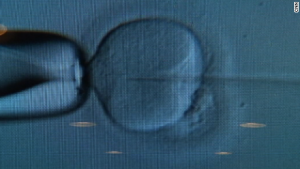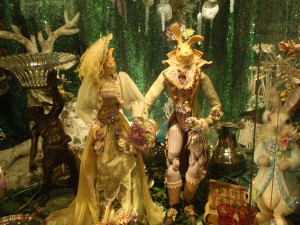 Bioethicists are, for the most part, a pretty presumptuous bunch: who on earth do they think they are?
Bioethicists are, for the most part, a pretty presumptuous bunch: who on earth do they think they are?
In this case, however, highlighted by the Washington Post, they have got things right:
An elite panel of scientists and bioethicists offered guarded approval Wednesday of a novel form of genetic engineering that could prevent congenital diseases but would result in babies with genetic material from three parents.
The committee, which was convened last year at the request of the Food and Drug Administration, concluded that it is ethically permissible to “go forward, but with caution” with mitochondrial replacement techniques (MRT), said chairman Jeffrey Kahn, a bioethicist at Johns Hopkins University.
No, I’m not sure why it is up to them to decide what is or is not “ethically permissible”, but still…
But the advisory panel’s conclusions have slammed into a congressional ban: The omnibus fiscal year 2016 budget bill passed by Congress late last year contained language prohibiting the government from using any funds to handle applications for experiments that genetically alter human embryos.
Thus the green light from the scientists and ethicists won’t translate anytime soon into clinical applications that could potentially help families that want healthy babies, said Shoukhrat Mitalipov, a pioneer of the new technique at Oregon Health & Science University in Portland, Ore.
“It seems like the FDA is disabled in this case by Congress,” Mitalipov said. “At this point we’re still not clear how to proceed.”
Congress should get out of the way.
The FDA released a statement Wednesday saying it will carefully review the report from the advisory committee, but added that the congressional ban prohibits the agency from reviewing applications “in which a human embryo is intentionally created or modified to include a heritable genetic modification. As such, human subject research utilizing genetic modification of embryos for the prevention of transmission of mitochondrial disease cannot be performed in the United States in FY 2016.”
The new clinical procedures should be used rarely, with extreme care and with abundant government oversight, and they initially should be applied only to male embryos, the advisory panel said. The group delivered its report at a morning news conference at the National Academy of Sciences headquarters in Washington.
The report comes at a time of dazzling advances in genetic engineering and a commensurate struggle to understand the ethics of “playing God,” a phrase uttered twice Wednesday by committee member R. Alta Charo, a professor of law and bioethics at the University of Wisconsin.
Then again, as it’s most unlikely that God played God…
The FDA last year asked the Institute of Medicine, now part of the National Academies of Sciences, Engineering and Medicine, to review the ethical implications of MRT since this other method of genetic engineering would result in what has been loosely referred to as “three-parent babies.” British officials have already approved investigatory experiments involving the technique.
Certain serious congenital diseases can be passed from a mother to child via the tiny amount of genetic material contained in the mitochondria, which are small organs within a cell that are often described as the cell’s energy factories or power plants. New experimental techniques involving in vitro fertilization make it possible to replace mutated and potentially disease-associated mitochondrial DNA (mtDNA) with non-pathogenic mtDNA donated from another woman.
Mitochondrial DNA contains 37 genes and is distinct from nuclear DNA (nDNA), which in humans has upwards of 20,000 genes. The mitochondrial DNA is not found in sperm, only in eggs, and thus is passed only from mother to child. That’s why the panel recommended limiting the experimental procedures at first to male embryos.
The males-only guideline is intended to prevent the introduction of unwanted, irreversible genetic changes to the human species. Any genetic changes associated with this kind of engineering will meet a dead end in males.
“If there are adverse events, they would not be reverberating down the generations,” Charo said.
The procedure should be extended to female embryos only after the long-term effects of such novel genetic engineering are better understood, the committee concluded.
Nuclear DNA is by far the more significant form of genetic material for determining most human characteristics. As the committee put it, “[W]hile mtDNA plays a central role in genetic ancestry, traits that are carried in nDNA are those that in the public understanding constitute the core of genetic relatedness in terms of physical and behavioral characteristics as well as most forms of disease.”
As a result, the modification of mitochondrial DNA “is meaningfully different.”
But panel members said that they took the philosophical issues seriously, noting that someone with genetic material from two different maternal bloodlines would potentially have to wrestle with questions about identity, kinship and ancestry.
Not really. The babies who benefit from this technology will have about 0.1 percent of their DNA attributable to a third party. It’s a (very) crude way of looking this, but think how many great, great-grandparents away it would take to account for 0.1% of someone’s ancestry….
To describe the donor as a third “parent” is, to put it mildly, a stretch.
And, as a reminder of what this is about:
The donor provides only their mitochondria. Often called the “power plants” of the cell, the mitochondria converts energy from food into energy that can power a cell. When someone’s mitochondria don’t function properly, it’s bad news indeed…
As one ‘ethicist’ notes:
It is not part of what makes us genetically who we are.It doesn’t affect height, eye color, intelligence, musicality. It simply allows the batteries to work properly…
And as to what’s at stake;
Mitochondrial diseases can cause a whole host of life threatening problems, and it’s estimated that as many as 4,000 children are born with such conditions in the United States each year.
Again, politicians should get out of the way.


 The Guardian (from 2011):
The Guardian (from 2011): Pope Francis on Good Friday:
Pope Francis on Good Friday:





